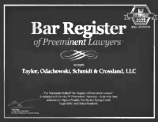Understanding Digital Assets in Probate
In today’s digital age, the concept of estate planning has expanded beyond physical assets to include digital assets. However, the rapid evolution of technology has brought about new challenges in estate administration and probate.
Digital assets encompass a wide range of intangible properties stored electronically, including but not limited to:
- Cryptocurrencies: Bitcoin, Ethereum, and other forms of digital currency
- Online Accounts: Email, social media, banking, and other online accounts
- Digital Files: Documents, photos, videos, music, and other digital content
Unlike tangible assets, digital assets often lack physical documentation and may be stored in various online platforms or digital wallets. This presents unique challenges during probate, as executors may encounter difficulties locating, accessing, and distributing these assets according to the deceased individual’s wishes.
Without proper estate planning that specifically addresses digital assets or digital legacy, disputes among heirs and beneficiaries can arise, leading to probate litigation.
Navigating Probate Litigation Over Digital Assets
When disputes over digital assets arise during probate, it’s essential to seek legal guidance from an experienced probate litigation attorney. The legal process may involve:
- Identifying and Valuing Digital Assets: The first step in resolving disputes over digital assets is identifying and valuing the assets in question. This may require accessing online accounts, retrieving financial records, and working with experts to determine the value of cryptocurrencies or other digital holdings.
- Resolving Ownership and Access Issues: Disputes may arise over ownership rights to digital assets or access to online accounts. An attorney can help navigate these issues by reviewing estate planning documents, analyzing relevant laws and regulations, and advocating for the rightful heirs or beneficiaries.
- Addressing Privacy and Security Concerns: Digital assets are often protected by privacy and security measures. A probate litigation attorney can take appropriate legal steps to safeguard sensitive information while ensuring compliance with relevant privacy laws.
- Pursuing Legal Remedies: In cases where disputes cannot be resolved through negotiation or mediation, litigation may be necessary. An attorney can represent clients in probate court proceedings, advocating for a fair resolution and upholding the deceased individual’s intentions regarding their digital assets.
With the guidance of a skilled probate litigation attorney, individuals can address disputes over digital assets in probate court, ensuring that the deceased individual’s estate is administered according to their wishes and that heirs and beneficiaries receive their rightful inheritance, including digital holdings.
Contact an Experienced Probate Litigation Attorney Today
As digital assets continue to play an increasingly significant role in estate planning, it’s essential to address potential disputes proactively. Probate litigation involving digital assets requires careful consideration of both legal and technological factors, making expert legal guidance invaluable. By partnering with a skilled probate litigation attorney, you can navigate the complexities of digital asset disputes with confidence, ensuring that your interests are protected and that the probate process proceeds smoothly.
If you’re facing probate litigation over digital assets, Taylor Odachowski Schmidt & Crossland, LLC is here to help. Our team of experienced probate litigation attorneys has a proven track record of success in handling complex disputes involving digital assets. With our personalized approach and commitment to client satisfaction, you can trust us to advocate for your interests and work toward a favorable resolution. Contact us today through our contact form or at (912) 634-0955.



